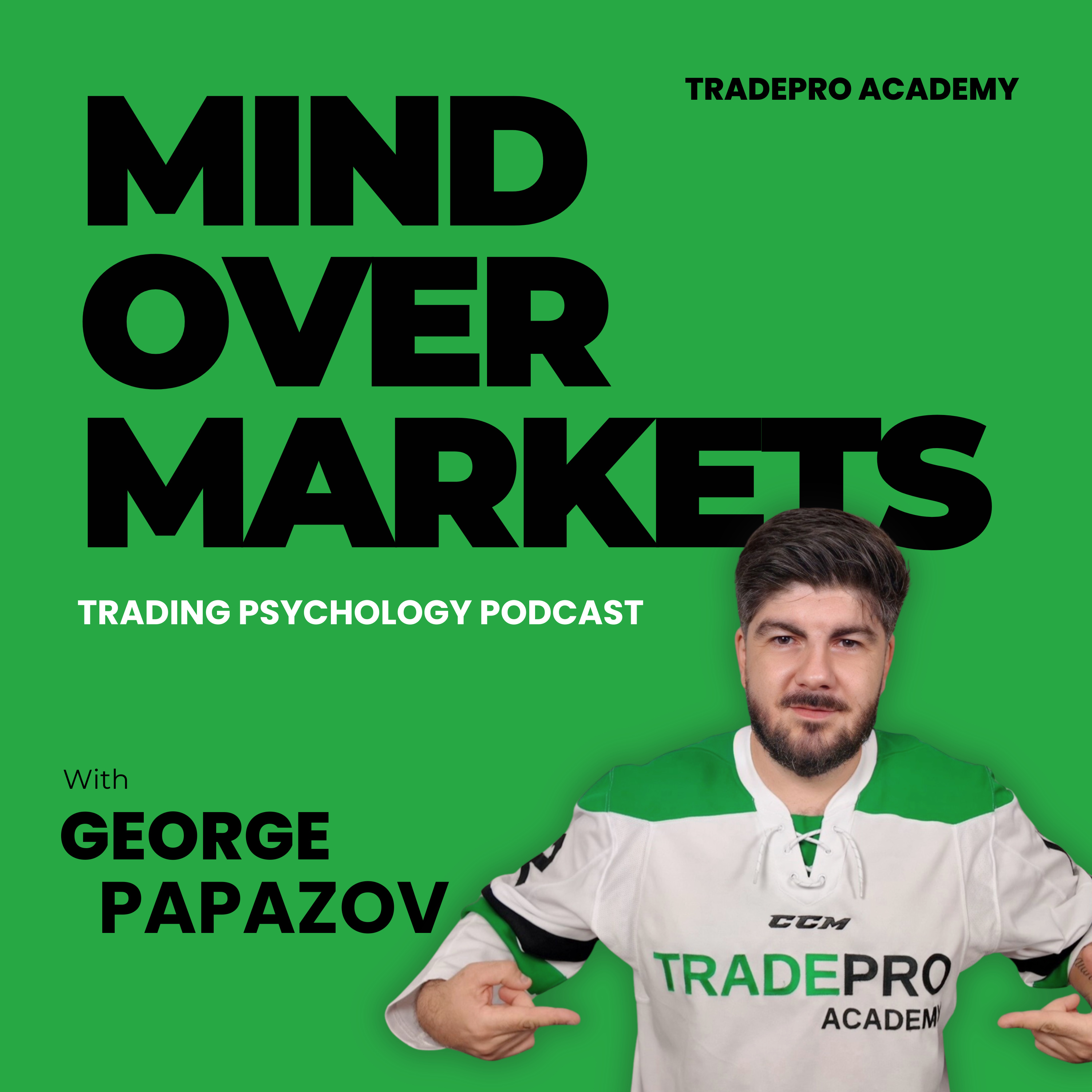

Mind Over Markets: Trading Psychology Podcast
George Papazov
Mind Over Markets is the trading psychology podcast for serious traders ready to master the real edge — their mind. Hosted by George Papazov, founder of TRADEPRO Academy, this show helps you break emotional loops, regulate impulses, and build a confident trader identity. Learn how to rewire your mindset using NLP, coaching, and performance psychology. Ready to go deeper? Unlock the full ASCEND psychology program inside TRADEPRO Academy.
Episodes
Mentioned books

Jan 14, 2021 • 1h 16min
Are Your Trading Expectations Setting You Up For Failure?
In today’s episode, our discussion is going to be focused on expectations that new traders have about trading, and more specifically, how unrealistic expectations can be extremely toxic for your journey. If you’re serious about becoming a trader, it’s wise to understand the nature of the beast now rather than learning it the hard way […]

Jan 7, 2021 • 1h 11min
Is Your Financial Thermostat Set Too Low for Your Trading Goals?
In today’s episode, we are going to be discussing the concept of a financial thermostat and how your default setting may actually be holding you back from achieving the trading success that you know you deserve! It’s no secret that trading is linked with money; if you think about what initially drew you to this […]

Dec 31, 2020 • 1h 9min
Small Actions Can Have Big Results: The Power of Being 1% Better EVERY Day!
As another new year approaches, most people have an idea of what they want to accomplish but their goals might just seem so out of reach, so out there, that it’s almost too intimidating to start. We often assume that if we want to achieve big things, we need to take big action – but […]

Dec 24, 2020 • 1h 20min
The Fear of Success and It’s Role In Your Self-Sabotage
In today’s episode, we are going to be discussing a topic that people don’t really talk about much in this industry and that is the fear of success and how it can be detrimental to your end goals as a trader. Take a moment to reflect on this question: “Do you fear your own success?” […]

Dec 17, 2020 • 1h 5min
Why Every Trading Idea is Not Worth Your Capital
In today’s episode, we are going to be discussing a topic that we believe will help a lot of traders out and that is why every trade idea is not necessarily a trade that you should execute. New traders as well as traders struggling to find consistent profitability tend to find themselves in a hamster […]

Dec 10, 2020 • 1h 27min
Interview with TRADEPRO Oil Desk Manager and Coach Stephen Box
In today’s episode, we’ve got a special treat for you in the form of an interview with our very own oil desk manager, trader, and coach Stephen Box! Stephen joined TRADEPRO Academy back in 2017 as a veteran crude oil trader looking for a community of other professional futures traders to trade with. During one […]

Dec 3, 2020 • 1h 9min
How to Finally Break Your Bad Trading Habits
In today’s episode, we are going to be discussing how to break your bad trading habits so that you can finally achieve the results that you deserve! Traders are constantly telling us that they are aware of the habits that are weighing them down but for one reason or another, they just can’t seem to […]

Nov 26, 2020 • 1h 14min
How to Use Uncertainty as an Opportunity in Your Life and Trading
In today’s episode, we are going to be discussing how to use uncertainty as an opportunity to get outside of your comfort zone and grab your life and trading by the horns. As a species, humans hate uncertainty! In fact, all you have to do is look back to our prehistoric ancestors as proof! Think […]

Nov 19, 2020 • 1h 9min
How to Handle Trading Losses Like a Winner
!n today’s episode we are going to be discussing how to handle trading losses like a winner because at the end of the day, it’s not about how much money you make but how much money you can keep, and if you can’t take a loss then sooner or later you will take the mother […]

Nov 12, 2020 • 34min
Trading Lessons from the Poker Table
If you know anything about us, you’ll know that we enjoy studying disciplines outside of trading to see if there any transferrable skills that we can use to help build our mental edge as traders, and poker just so happens to be one of those cases! In today’s episode, Mark discusses some of the similarities […]


